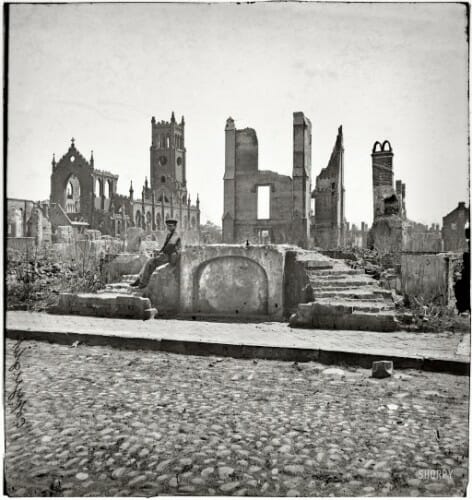What is going on in worship today?
This is the question with which Constance Cherry begins her
2004 article “My House Shall Be Called a House of… Announcements”. It’s a
question that I frequently ask myself as well. Cherry’s article is challenging
reading, not just because of the provocative title, but because of the evidence
that she presents. No, it’s not a comprehensive study, and so we shouldn’t build
an entire thesis upon it. However, it’s possible to ponder its conclusions
seriously and so apply ourselves to some serious “worship reflection”.
Cherry makes it clear that she is operating on the
assumption that “the way we spend our time is an indicator of what we consider
to be important.” I think it’s a fair assumption. If we enjoy reading, then we
will spend a fair portion of our time reading. If we think time with the family
is important, then parents will spend time with their children. You get the
picture.
What I found particularly disturbing, in the light of this
assumption, was the amount of combined time spent in Scripture reading and
prayer. This ranged at the top end of the scale from 18% (Traditional) and 17%
(Liturgical) down to 10% (Blended) and 7% (Contemporary). In real terms that
means that the most time spent on these combined corporate worship activities
was, at the most, 15 minutes (Liturgical – given it’s longer average service
time) and, at the least, a miserly 6 minutes (Contemporary).
6 minutes out of 87.
It’s easy to sit here in Australia
and criticise the 31 anonymous churches from across 4 states in the USA
I think there is some benefit in re-evaluating what is
important in our corporate worship. I mean really important. What is the
point of the weekly gathering? What is God’s house for? Announcements?
Performance music? The cup of coffee and conversation
afterwards/beforehand/during? Or is it meant to truly be a “house of prayer for
all the nations” (Is. 56:7).
 I am convinced that many churches are in a place where their
weekly worship gatherings are suffering from the effects of war. The “Worship
Wars”, that is. Whilst there still may be some battles lingering on, I’m of the
opinion that this war is over (thank the Lord for that!). Nobody “won”, of
course, since it was a ridiculously futile and poorly run campaign on both
sides of the battlefield. But even though the war is over, still there remains
the devastating reality that many people have been genuinely hurt, churches
have been split down the middle, and the effect on corporate worship is that
those who plan services and meetings no longer know with confidence what worship
really looks like. The battle over style has taken our attention hostage
for so long that we’ve forgotten what is important for our weekly gatherings.
I am convinced that many churches are in a place where their
weekly worship gatherings are suffering from the effects of war. The “Worship
Wars”, that is. Whilst there still may be some battles lingering on, I’m of the
opinion that this war is over (thank the Lord for that!). Nobody “won”, of
course, since it was a ridiculously futile and poorly run campaign on both
sides of the battlefield. But even though the war is over, still there remains
the devastating reality that many people have been genuinely hurt, churches
have been split down the middle, and the effect on corporate worship is that
those who plan services and meetings no longer know with confidence what worship
really looks like. The battle over style has taken our attention hostage
for so long that we’ve forgotten what is important for our weekly gatherings.
I think Cherry’s article demonstrates that in some fairly
stark terms.
So, now we need to “rebuild the [worship] ruins” (Isaiah
61:4).
In an attempt to contribute to this I plan to write on the
topic of worship frequently this year through this blog. I have no idea how
many posts this will involve, but I feel that this is vitally important. It
won’t be the only topic I write on, but it’s one I feel particularly strongly
about at this time.
As always, I welcome comments, discussion, questions and
thoughts from others. I’m not an expert. I’m just thinking out loud. Through it
all, though, I pray that this may help others (particularly those involved in
worship preparation and leadership) in very practical ways.
Most of all, I pray that the body of Christ may continue to
be built up (Eph 4:12), for the glory of God and the benefit of his Kingdom.


Looking forward to your worship posts.
ReplyDeleteIn a busy lifestyle/culture, are we trying to condense what used to be a few services into one service? Even when I was growing up and as a teenager, we had the holiness meeting, a prayer meeting, bible study, and a Salvation Meeting (all but the bible study were on Sunday). The holiness meeting had much more corporate worship and prayer with a short holiness message. The prayer meeting was a minimum half hour long intensive corporate prayer meeting, with the Salvation meeting having most of the 'performance' to attract new people. These are very different styles/meetings. They can't really be combined. Maybe that's the answer?
ReplyDeleteHi Adam.
ReplyDeleteYou've asked the question: What is the point of the weekly gathering? What is God’s house for? . . . Or is it meant to truly be a “house of prayer for all the nations?”
Do you similarly see our Salvation Army languising in prayer & scripture focus? I'm assuming so, & if so, your position of Booth College Director should enable some influence on future Salvation Army worship leaders. Commissioned officers departing Bexley secure in the understanding that God's house need truly be a "house of prayer" should in due course contribute to redressing our imbalance. Just a thought!